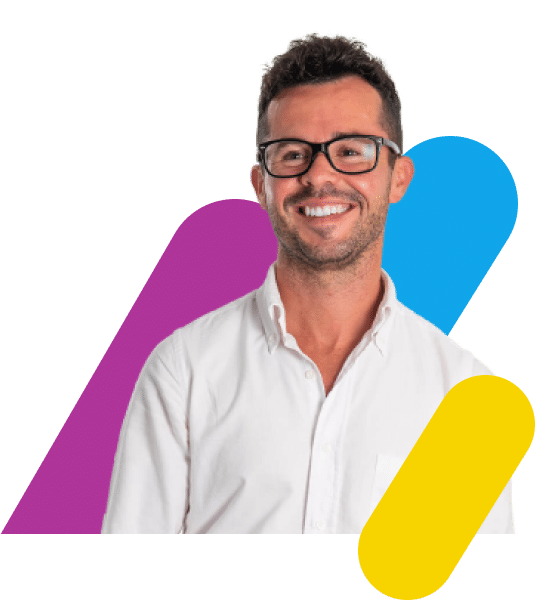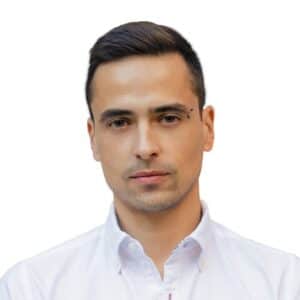Just a few weeks ago, I had the privilege of doing a mentoring session for the Spring batch of Founders at Startup Lisboa. While the primary focus was on marketing, I couldn’t resist highlighting one of the most critical success factors for startups – networking and building a community around their venture.
From my conversations with nearly every successful founder I’ve sat down with – whether it’s for content, potential customers, or my own networking efforts, this theme consistently emerges.
Many attribute a large part of their success to networking and community. It’s helped them subsequently achieve valuations in the millions, and in some cases, the billions.
Here’s the actual slide I used to illustrate how crucial this aspect is for these highly successful founders:

Connecting with the right people, sharing knowledge, and creating a supportive community are pivotal steps towards sustained growth and success.
The story I’m sharing with you today is not only a testament to this but also evidence of what happens when you nurture connections in the startup world.
I had the pleasure of speaking with Charlotte Ketelaar, the CEO and Co-Founder of Capwave AI.
Capwave aims to revolutionise the capital-raising process for early-stage founders by fluently teaching them the investor language.
This conversation itself came from the power of engaging with people. A while back the amazing team at Cooth put me in touch with Charlotte to discuss how Altar.io could assist her in building the first version of Capwave.
While it was a positive conversation, she ultimately found a technical co-founder. Which, while slightly disappointing for us given the exciting nature of her project, was a fantastic outcome for her.
As I’ve often said, finding a technical co-founder is ideal when building your startup – provided you find the right person and conduct thorough due diligence.
With that in mind, instead of ending the conversion with Charlotte after learning she wouldn’t need our services, I instead invited her to discuss her experiences in finding and vetting her technical co-founder.
Why? Because I’m well aware that many entrepreneurs struggle to find a co-founder – so if I can bring you a valuable resource that makes the process easier, I will.
And this conversation delivers just that.
(Spoiler alert: Charlotte’s network played a significant role.)
Contents
About Charlotte & Capwave AI
Rui: Charlotte, first of all, can I ask you to introduce yourself and this project you’re currently working on?
Charlotte: I’m the CEO and co-founder of Capwave AI. We are building a capital-raising platform for early founders, targeting seed and seed(+) funding rounds.
I’ve been looking for a technical co-founder, and that’s how you and I got in contact. Initially, I considered building an MVP with a software development company, but having found a co-founder, which is super important for my journey, led me to pursue that route.
R: This is the story I want to tell today. There are no two ways about it, having a technical co-founder from day one is the ideal scenario.
For some context, can you share the role of technology in your business model? How important is technology for your business?
C: Very important because it is a tech-driven platform. We’re building a private LLM to give feedback on pitch decks and improve the materials that go to investors when founders want to raise capital.
Pitch decks vary significantly. Capwave AI provides tailored, relevant feedback to that particular startup founder on how they should present their business to investors. With investors receiving 100+ decks a week, it’s crucial to standout with an exceptional deck to secure that first meeting.

Looking for Software Development Services?
Get straight to the point, jargon-free advice from a tech expert that has been building award-winning Startups for the past 10 years.
Finding a Technical Partner
R: Was being a tech-driven business the main reason you sought a technical co-founder? Or, were there other reasons you pursued that route instead of working with an agency or freelancers?
C: Given my extensive experience with capital raising at my first company, ZWANET, I know that having a technical co-founder is necessary for a high-growth startup like Capwave AI.
It’s great to build a product and show engagement with a software development company, but to attract investors, you need a technical co-founder to be independent and sustainable.
This doesn’t mean you can’t use an agency, but you will eventually need that technical co-founder to speak towards what you’re building.
R: What initial steps did you take to find a technical co-founder after deciding you needed one?
C: My journey started with trying to find a technical co-founder about 12 months ago. I wanted to expand what I built with ZWANET to earlier-stage founders.
We received many inquiries from people needing help but couldn’t afford a white-glove service. There’s no go-to platform for pre-seed or seed capital raising, that gives founders that full roadmap from idea/building to getting funded. It needed to be a tech platform to reach as many founders as possible.
With AI and large language models becoming viable, I knew it was possible. I started putting out feelers to my network, letting them know I was looking for a technical co-founder.
R: When you mention tapping into your community, what does that involve? Were you calling people, meeting them?
C: I’m in the startup world, so my network includes many people in the industry and investors.
I’d have coffee with someone, ask about their business, and then mention that I was looking for a technical co-founder.
If they knew someone, they’d let me know. It’s all about personal relationships and leveraging your network.
Evaluating Potential Co-Founders
R: That’s very actionable, thank you. So, one-on-one connections and leveraging your network – it makes sense.
How did you evaluate the technical skills and expertise of potential co-founders?
C: First, I explained the project and gauged their excitement. A co-founder needs to believe in what we’re building.
Then, I’d ask about their experience with similar projects. Since Capwave is AI-driven, it was essential they had experience with large language models. I asked them to send me projects they worked on and based my final decision on that.
R: That’s clear. Many non-technical founders struggle with this. In your case, it’s a bit different, but it’s hard to distinguish between someone enforcing their skill set and someone genuinely looking out for the project’s best interests.
What qualities beyond technical skills did you consider important in this choice? What soft skills did you look for?
C: Complementary personality was crucial.
I’m quite dominant and in-your-face, so I didn’t want someone exactly like me. I needed someone who wouldn’t clash with me.
They also needed to be an experience partner because they’ll be involved in meetings and need to confidently explain what we’re building.
They also needed to understand security and legal aspects, even if we have lawyers for that.
R: I assume you didn’t choose one out of one person. You must have spoken with other potential co-founders.
What were the biggest challenges you faced during this search?
C: Initially, the biggest challenge was myself.
I was looking for someone who I thought needed to be like my best friend. That’s not true, and they shouldn’t be your best friend.
You need to work well with them, but you don’t need to hang out with them all the time.
So, it was a journey for me to realise who I needed to find. After that, the main challenge was ensuring the person had the resources to build without a salary, just on equity. That was super important for me.
R: Were there any red flags or warning signs you noticed in these conversations that others in your position could benefit from hearing about?
C: Definitely ask if this is their only project or if it’s their primary focus.
I found that a lot of developers work on multiple projects simultaneously.
For me, it was crucial that Capwave AI was their main focus, not just another project.
Another red flag is technical people being asked to be co-founders for other businesses.
I found out some candidates were already committed to other startups, which wouldn’t work for me as I needed their full attention.
R: There’s one question I need to ask related to this. Working for equity and not for money requires belief.
They need to believe in the project and you. What do you think was most important for your technical co-founder to decide to move forward?
C: My co-founder had seen me speak at different events. I believe the most important factor was their belief in me and my ability to pull this off.
I’m building a business in an area I know well, so it wasn’t a random idea. I have the network and know-how to build it. He saw my presence and confidence in multiple settings, which made it a yes for him.
R: How did you ensure your vision and values aligned with theirs? What was the process to ensure alignment?
C: I did a lot of pre-work, knowing exactly what was needed and explaining it clearly.
We had a strategy session where we outlined key milestones and assigned responsibilities. We hold each other accountable with regular meetings to track progress. Clear objectives and processes are crucial.
R: Were there any initial disagreements or differences in opinion? If so, how did you manage them?
C: The equity discussion is always tough, especially if one person came up with the idea and sees the vision very clearly and the other is still working out what the equity could be worth down the line.
It wasn’t a huge disagreement, but it came up twice. It’s important to remember that when someone works for equity, it’s also their business, not just your idea.
It was vital for me to acknowledge that and find a fair balance.
R: I know of many teams that ruined everything over equity discussions.
The idea owner often feels overly protective, leading to conflicts. How did you handle this to ensure a fair outcome?
C: I did my research and asked my founder friends about their splits with technical co-founders.
Based on these data points and external resources, we found a way to make both of us happy with our shares.
It’s crucial to appreciate the other person’s contribution and find a data-driven, rational approach to equity distribution.
R: How did you approach the topic of equity and ownership with your technical co-founder?
What legal agreements or contracts did you put in place to formalise the partnership?
C: We set up a Delaware C Corp and included ourselves as the two officers in the vesting agreement.
We allotted shares and followed a standard vesting schedule with a 12-month cliff and four-year vesting. This way, we both have a clear understanding of our shares and commitment.
R: If you could go back and speak to Charlotte from 12 months ago, what one piece of advice would you give her?
C: Get your network in the startup world.
R: What advice would you give other startup founders looking for a technical co-founder?
C: Again, get your network in the startup world.
Coming from a corporate job, you might not have the connections you need. Attend events, meet other founders, and learn how to be scrappy instead of relying on a big budget.
Sign up for our newsletter
Join hundreds of entrepreneurs and business leaders to receive
fresh, actionable tech and startup related insights and tips
Thank You, Charlotte…
…for taking the time to sit down with me and share your invaluable insights on finding and evaluating a technical co-founder.
To the entrepreneurs reading this, I recommend a quick visit to Charlotte’s LinkedIn page. Not only to connect with her but also because she is doing brilliant work with her page.
And please never forget: building a startup is as much about the people you connect with as it is about the product you create.
Thanks for reading.

